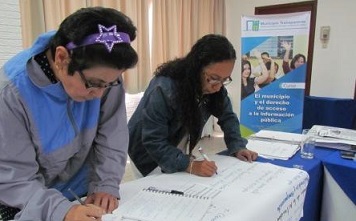LESSON
Lesson Learned: Empowering the Voice of a New Generation in Pakistan
Project implementation was centralized in Hyderabad in spite of the fact that the project design allowed for a decentralized approach. This led to activities not being properly followed up which impacted on the effectiveness of the programme.
Project Name
Project Partner
Civil Society Support Programme
Project Description
The project’s objective was to increase the role of youth in public affairs and policy development in 20 locations in Pakistan. Its intended outcomes were: a strengthened networking and institutional capacities of the programme; enhanced understanding of the Voice of New Generation youth on social, political and development issues; and increased participation of Voice of New Generation groups in research and advocacy for policy making on youth issues.
The project design addressed issues directly relevant to youth and incorporated community based organizations into programme delivery which helped ensure an effective intervention and continuity of efforts. However, it assumed all participants were literate, had internet access, and the time and drive to develop and sustain a Voice of a New Generation effort within their area. This was the case for only a small minority of the targeted youth. This significantly reduced the relevance of the project.
Evaluation Date
August 2014
Theme
Country
